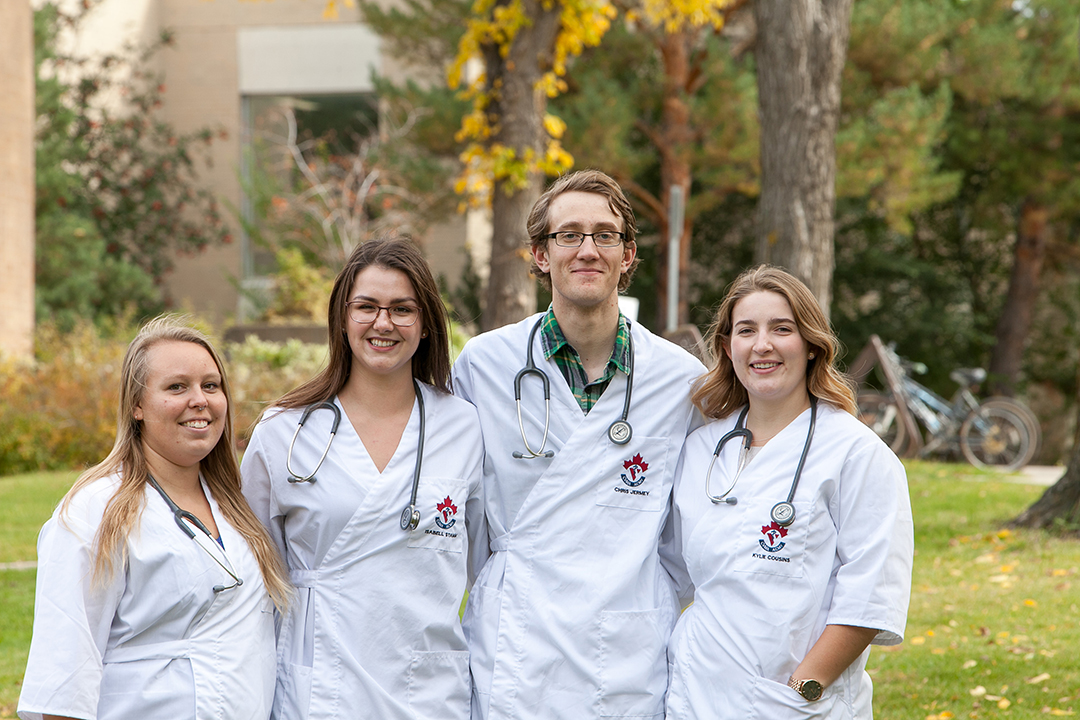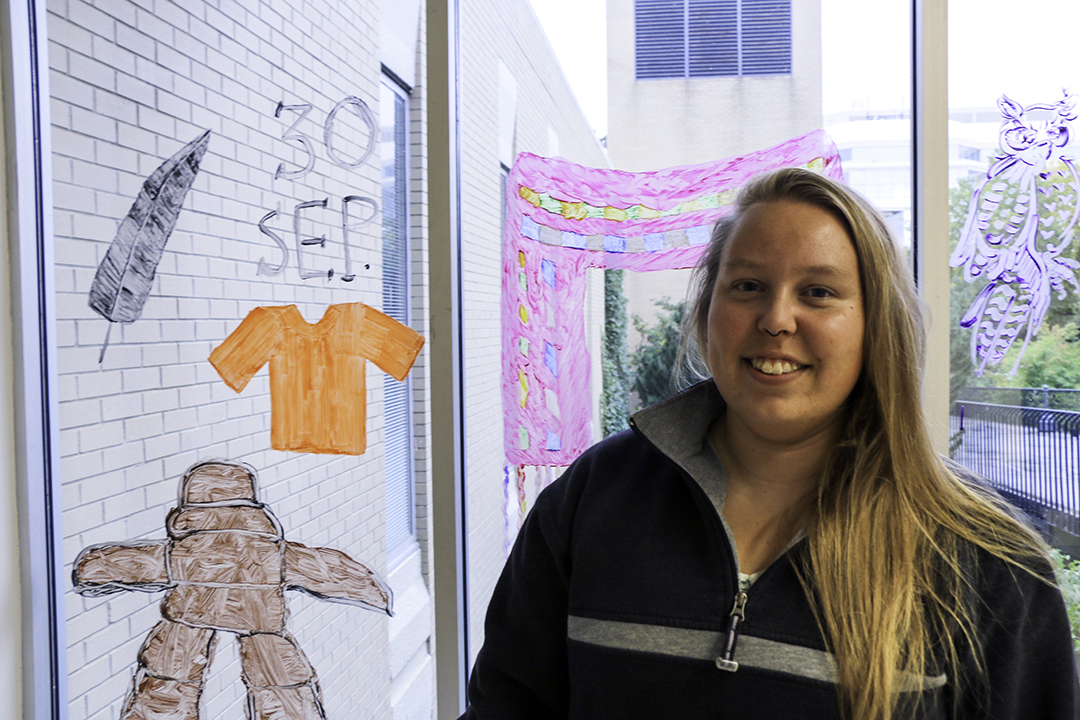
A voice for Indigenous students
As the second-ever Indigenous student representative on the Western College of Veterinary Medicine's student association, Olivia Rad has dedicated her time to creating learning opportunities and events for the entire college.
By WCVM TodayLast fall, the the second-year veterinary student organized window painting and a bannock sale, and she’s planning on facilitating more activities — such as beadworking over the lunch hour — in 2020.
As a Métis student from Invermere, B.C., Rad says her role on the Western Canadian Veterinary Students Association’s (WCVSA) executive offers her a chance to learn more about Indigenous culture and history. It also allows her to provide advocacy and support for fellow Indigenous students at the college.
She recently answered a few questions about herself and her role.
What is the WCVSA Indigenous student representative position?
Essentially I’m there as a voice, for Indigenous students at the WCVM. I’m someone students can come and talk to if they need to.
[This role] was created in 2018, and Dayle Oster was the first person to hold the position.
What is your goal for this year with this position?
I’m looking at it from a more educational standpoint — I’d like to educate people and even learn more myself.
Why do you think it’s important for the college to be part of Indigenous engagement and these types of activities?
I think there’s a lot of Indigenous students who don’t get the support they need. I think it’s having Indigenous representatives — showing our presence at the school is a great way for them to have some support.
With support, it’s creating a little community for them to feel comfortable and safe to talk about anything.
Why should people participate in the activities you put on?
I think it’s a huge education thing. For those who aren’t Indigenous, to know more about the Indigenous community, I think it’s huge. That’s where I’m coming from. I don’t know a lot about it [culture] and I love learning about it.
Why do you think it’s important for the college to be part of Indigenous engagement?
I think it’s important for everyone to be a part of Indigenous engagement, not just the college specifically. I think everyone, Indigenous or not, should be educating themselves on reconciliation.
As health care providers, we will be working with Indigenous people. And as vets, we should be culturally aware of our clients and their relationship to their animals — and to know how we can better serve them.
In doing this work, have you had any experiences where sharing cultural activities have opened peoples’ eyes or taught them about something that’s made an impact on them?
Yes, even with activities such as window painting, there were many of us who attended and learned from other Indigenous students who attended. For example, I along with others learned how to read, write and pronounce various animal names in the Cree language.
Why did you want to become a veterinarian?
I’ve always had an interest in animals. I grew up on a farm. I grew up in a really outdoorsy family, so I did a lot of hunting, fishing.
What do you hope to do after graduation?
Honestly, I just want to get as much experience as possible. I’d work in Saskatchewan, Alberta, wherever — even internationally if possible. I want to get as much experience as possible. My dream job would be back home in my hometown [of Invermere, B.C.]. I love the area.

